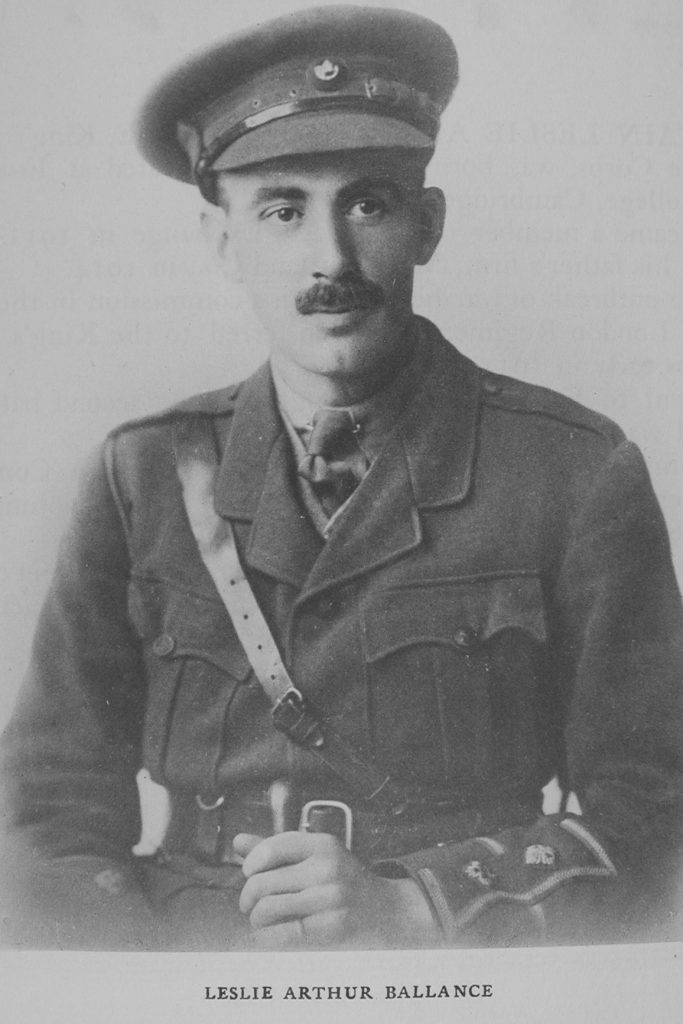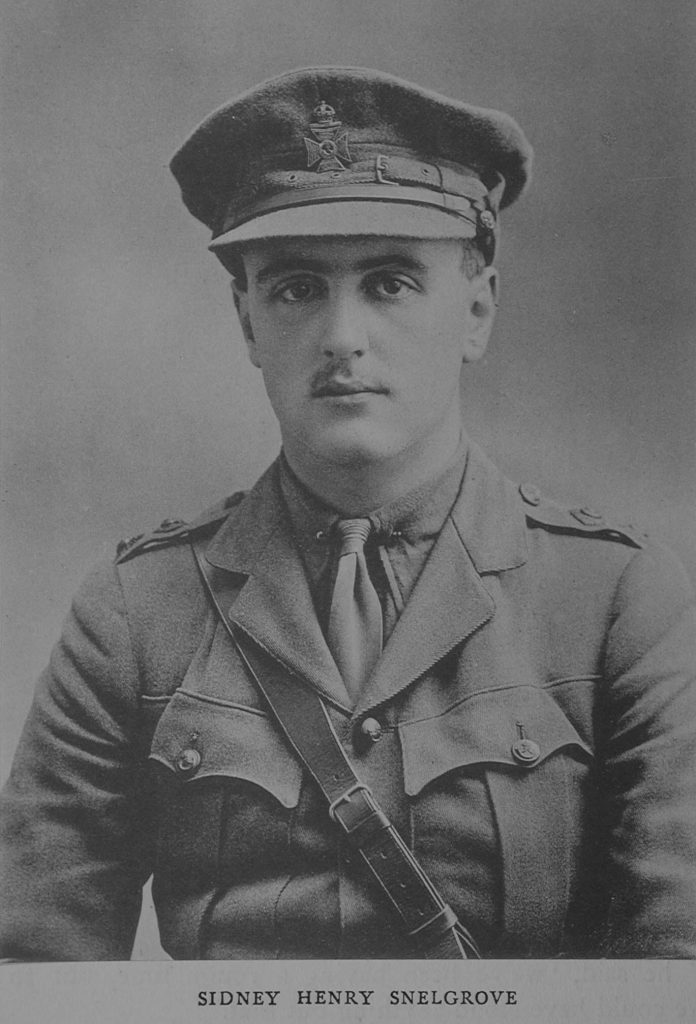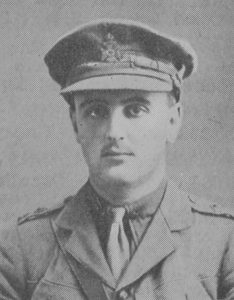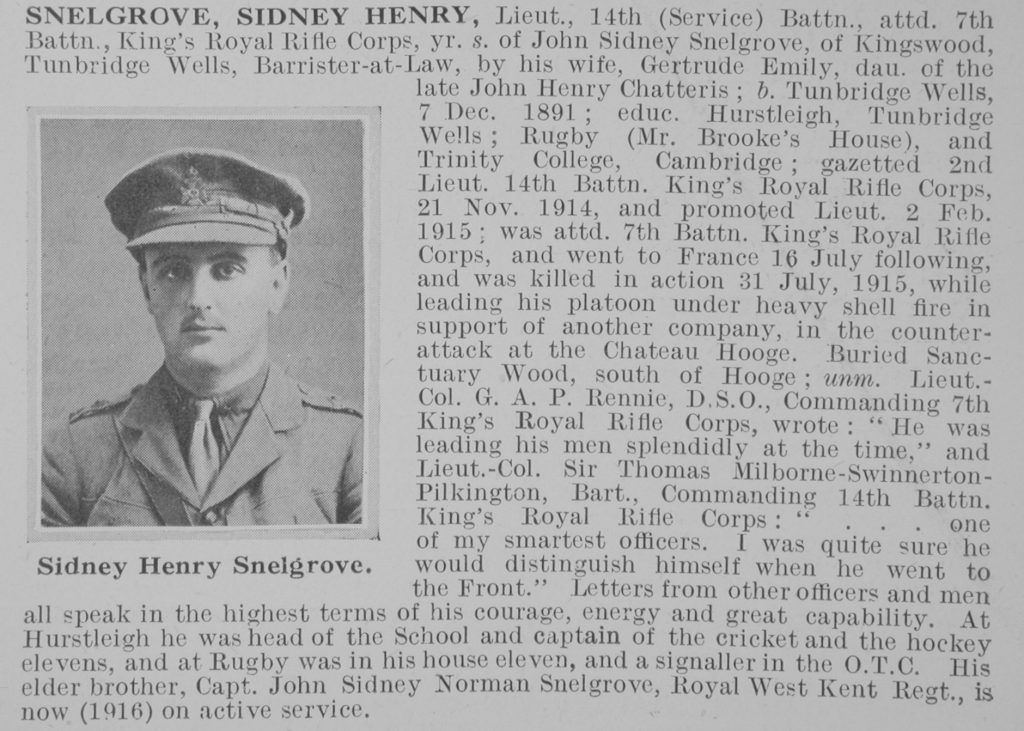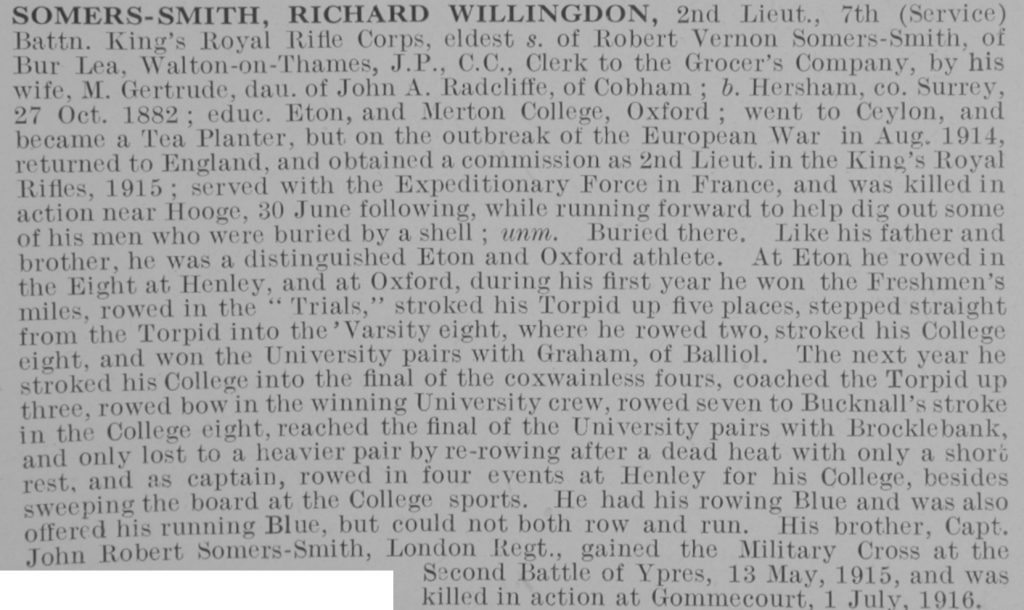CAPTAIN LESLIE ARTHUR BALLANCE, King’s Royal Rifle Corps, was born in 1889, and educated at Eton and Trinity College, Cambridge.
He became a member of the Stock Exchange in 1911 and a partner in his father’s firm, Marnham and Co., in 1914.
On the outbreak of war he was given a commission in the 15th County of London Regiment, but transferred to the King’s Royal Rifle Corps early in 1915.
He went to France in May, fought in the second battle of Ypres, and was invalided home in August.
Rejoining his regiment in September 1916 as a Company Commander, he was killed on 27 September. He had volunteered for a dangerous duty and lost his life in its execution.
His Colonel wrote: “I at once fell under the same quiet charm which he exercised over all with whom he came in contact. He was fearless to a fault and a very gallant officer.”
A brother officer wrote: “A better and finer character I never knew in all my life, and we always wanted to serve together out here. He simply was too wonderful in the show, never had a fear, and was so calm and splendid. The men just loved him and did anything for him . . . I can only say he was the finest man I ever knew.”
Source : The Stock Exchange War Memorial 1914-1918
BALLANCE, LESLIE ARTHUR, Capt. 2nd Battn. (60th Foot) The King’s Royal Rifle Corps, s. of Arthur William Ballance, of Park Lodge, Blackheath Park, London, S.E., and the Manor House, Herringswell, co. Suffolk, by his wife, Jane Peek, dau. of G. M. Frean; b. London, 9 Jan. 1889; educ. Eton, and Trinity College, Cambridge. In Aug. 1914, he obtained a commission in the 15th County of London Regt., but was transferred to the King’s Royal Rifle Corps, March, 1915; served with the Expeditionary Force in France and Flanders; was present at the Second Battle of Ypres, and was invalided home 12 Sept. 1915; rejoined his regiment on recovery, and was killed in action during the Battle of the Somme 27 Oct. 1916. Buried at Flers. His Colonel wrote: “It is with the deepest regret I write to tell you all about your son’s death. At about 4 p.m. on 27 Sept., when a bombing attack on the Germans in the line was in progress, a report was received by me that the Germans were giving ground. It was essential that the battalion on our right should have the information at once, so as to co-operate, and for greater chance of success I wanted to send an officer, but none was available. You son Leslie, hearing this, volunteered, and ran across towards the battalion on our right. . . . After he had gone about 60 yards out of the 100 yards, I heard a bullet fired from a distance. Your son ran on, but almost at once a bullet struck him. . . He fell on his face and never moved again. He was fearless to a fault, and a very gallant officer, . . . He is most sorely missed by all.” Unm.
Source : De Ruvigny’s Roll Of Honour Vol 3
